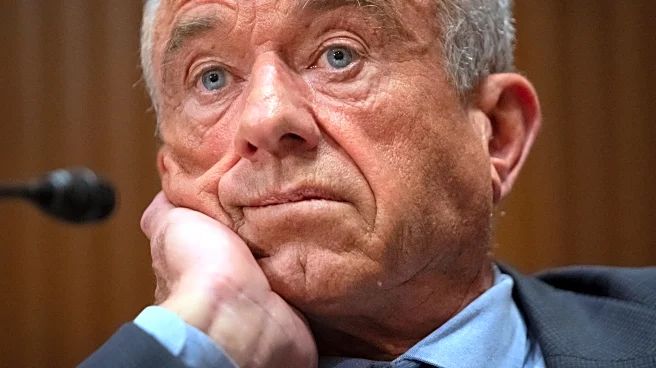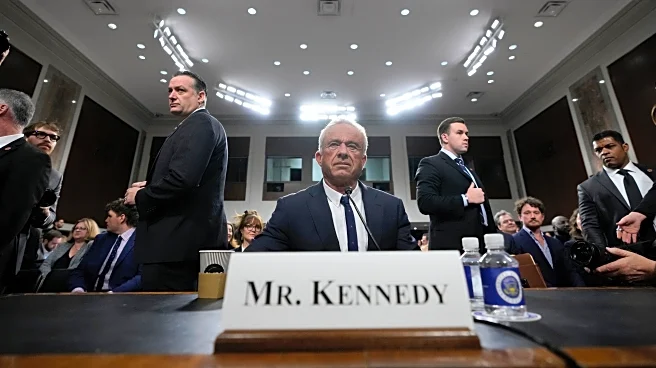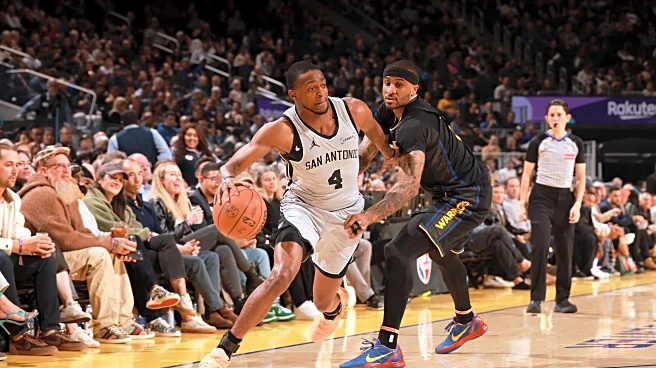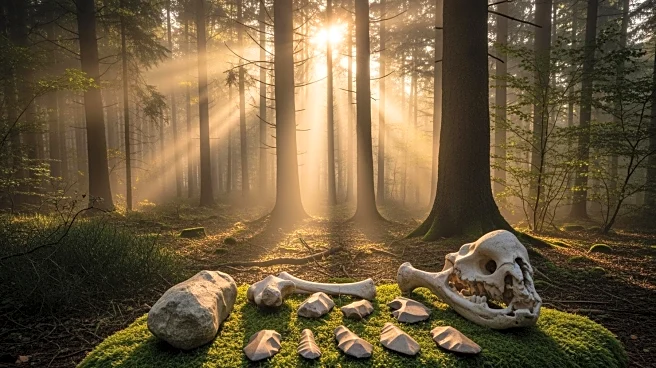
First pitch: 7:10 Central
Weather: National Weather Service still gutted, kinda humid, 86°
Opponent’s SB site: Federal Baseball
TV: Twins TV, MLBN (out of market only). Radio: LeCroy’s walk-up song coulda been “Run Run Run” by VU
Lefty starter MacKenzie Gore is having himself a strong fourth season of MLB ball; he made the All-Star team this year. (No, he wasn’t their mandatory “one player per team” pick; OF James Wood made the team,
too.) Gore throws the classic four pitches and averages in the mid-90s with his fastball; when he’s on, his slider’s mighty tough. He is NOT related to the more famous Gore who put warning labels on Naughty Records in the 80s/90s, teaching teenagers what albums they wanted to buy. Digits (YTD for MacKenzie, career for Daniel Zebulon):
/cdn.vox-cdn.com/uploads/chorus_asset/file/26066293/pitcher1.png)
Looking at Today in Twins History, in 2011, Michael Cuddyer pitched the eighth inning of a game in Texas, entering with the Twins down 20-5. Cuddy gave up a walk, two hits, and no runs. (The starter who got bombed was Nick Blackburn, and his MLB career would end after the next season.)
What’s notable about this is that the Twins hadn’t had a position player pitching since 1990 — it was outfielder John Moses doing it in 1990, and he did it twice that year. It would NOT be another 21 years before another Twins position player pitched. (Drew Butera would do it the next May.)
Essential reading from William Spivey of Medium, about growing up in south Minneapolis and playing Little League ball on happily-integrated teams. And about the jerks who hate good things like that.
Anything interesting about the Nationals? No. They did once take a bunch of money from a crypto company that went bankrupt, but that’s kinda predictable. There’s that time former Twin Matt LeCroy was catching and seven runners stole bases and Ron Washington had to take LeCroy out of the game and it made Washington cry, but you already know that story. Here it is if you don’t. Other that that, nah, I got nothin’ on the Nats.
So the day goes to a former Dodger, and not an especially successful one, but a heckuva character, Glenn Burke. Burke was the first MLB player to come out as gay, and he MAY have invented the high-five!
I found out about him on The A.V. Club. For those who don’t know, The A.V. Club was originally featured in the back pages of the free-print-edition copies of The Onion. I read it every week. It had really good music reviews — albums were reviewed by people who liked that kind of music. So, a heavy metal record by a heavy metal expert, a rap record by a rap expert, etc. And some good TV/movie reviews, too. I remember critic Tasha Robinson once saying that she believed HBO had a CEO of Boobs — someone whose only job was to watch every HBO show and yell, “more boobs!” (Robinson used a different, funnier word, that rhymes with Ritz.) The A.V. Club exists now in an online edition. Sorta. It’s kinda sad.
I was looking the other day for a review I remembered from years ago, and of course I couldn’t find it. A few years back, The A.V. Club was picked up by G/O Media, the same bunch of rich arrogant idiots who turded all over Deadspin, and sure enough, they immediately set about turding all over The A.V. Club. It is really difficult to find old articles on there, even though, in some cases, they ARE on there. (So the owners are paying for a server to host these articles, they just don’t care enough about their classic writing to make it easy to find.)
But, not being able to find that old review led me to finding about Glenn Burke, and that was very interesting.
Burke was a glove-first speedster with occasional pop who grew up in Oakland, and was drafted by the Dodgers in 1972. He played both basketball and baseball in school, and teammates marveled at how the 6’0” (in big shoes) Burke could outrebound much taller opponents. He was called up to the bigs in 1976, and immediately became a clubhouse favorite with his sense of humor and oddball antics — this on a team with no shortage of vivid characters like Steve Garvey, Bill Buckner, Dusty Baker.
In the last game of the 1977 season, Baker hit his 30th home run of the year, making it the first time four teammates had ever hit 30 or more. When Baker approached home plate, Glenn Burke was there, holding a hand over his head. Baker slapped it, and the gesture was repeated in the World Series, and a new baseball celebration trend was on. (We all know that baseball players love celebration gimmicks, be they rotting sausages or “do you like gladiator movies?” homer helmets.)
Did Burke invent the high-five? Eh, maybe, maybe not. The low-five had been common in Black culture since at least the WWII era, and both Magic Johnson and some college basketballers claimed they had come up with the idea of making it a high-five before Burke did. But in any case, Burke’s using it in the World Series made it popular, in baseball and elsewhere.
Despite his popularity, Burke struggled to hit in the majors, and what made matters much worse was he was good buddies with Tommy Lasorda’s son, Tommy Junior. Were they more than buddies? Who knows. But Lasorda Senior was in deep denial over Junior being gay — even insisting that his death, in 1991, was from cancer. It wasn’t cancer; it was AIDS. (There’s a nasty Lasorda quote about it which I won’t repeat here, it’s in this article if you’re interested.)
So a combination of factors led to Burke being traded from the Dodgers — from a clubhouse where players liked him, mostly knew about his sexual orientation, and mostly didn’t care. Instead, Burke wound up with the Dodgers, with new teammates, and a new manager, Billy Martin. (We watched a short documentary about Burke, and the minute it said his new manager was Martin, I said, “uh-oh.”)
Billy was, of course, a blowhard bully, and when he introduced Burke to his new teammates, announced “he’s a faggot.” And almost nobody in the A’s clubhouse was going to cross Martin to befriend a glove-first new guy. (A guy so well-liked in L.A. that some teammates cried when he was traded.) Burke would soon be gone from MLB, would hang around for a bit in the minors, and quit baseball for good in 1980.
In 1982, Burke did an interview with Inside Sports magazine (which was billed as an “edgier alternative” to SI and lasted 20 years). In the interview, Burke came out as gay. He said injuries were part of why he retired, but not the sole reason: “I probably wouldn’t have left if there hadn’t been the other problem, the gay thing” ... “put it all together, and it was too much.”
He had a good time partying in San Francisco’s gay-friendly Castro district for a few years and organizing events for amateur gay athletes, but he also developed a dangerous drug habit. In 1987, he was hit by a car and suffered terrible injuries, basically making sports impossible and increasing his reliance on drugs to blunt the pain. By 1994, he had AIDS, and died in 1995 at age 42.
Would Burke have been more successful in MLB if he hadn’t had to worry about managers who hated him for who he was? The numbers say no. But some of his teammates thought so. Fellow ex-closeted baseballer Billy Bean (who died last year, from leukemia) said that having to lead a double life was an enormous pressure on him (and Bean really hit quite well in the minors). Burke’s one friend on the A’s, pitcher Mike Norris, thought Burke had enormous talent. (Read this full article by Owen Watson about Burke and Norris, it’s really good. And if you like it, read this one about how Norris got jobbed out of the 1980 Cy Young because he had fewer “wins” than Steve Stone, the same way Johan Santana got jobbed in 2005.)
Regardless if Burke would have made it in MLB or not, it’s still amazing that no active MLBer has ever come out as being gay. Almost no active players have in any of the major American men’s sports. (Jason Collins, a backup big man, did come out near the end of his career, and played in a handful of games for the Brooklyn Nets after that.)
I remember seeing some player talking to broadcaster Charles Barkley about how he didn’t know if he could play with a gay teammate, and Barkley telling him, “you already have. You just didn’t know it.”
As mentioned, there’s a short (72 min.) documentary about Burke made in 2010, Out: The Glenn Burke Story. It’s available on YouTube but the quality of the video is terrible. There’s a much better-quality version on Vimeo, here’s the link.
It’s pretty low-budget; this doesn’t have the production values of, say, an ESPN 30-For-30 documentary. But the interviews are very good. Dusty Baker’s a lot of fun, he usually is. You have one former teammate in Oakland saying he was worried that a gay player wouldn’t be able to stick up for you in a baseball fight! I think a barely 6’0” guy who can outrebound much taller opponents is probably a pretty tough customer. The documentary has a very sad ending, but you already know what it is.
Incidentally, MLB honored Glenn Burke at the 2014 All-Star Game — the one at Target Field — by having his family in the audience. They even had a press conference about it. But no announcement was made during the game, and none on the TV broadcast. As so these things continue to go.
/cdn.vox-cdn.com/uploads/chorus_asset/file/26067731/Screenshot_2025_07_25_at_16_57_49_MLB_Starting_Lineups_Today_MLB.com.png)
More from twinkietown.com:












